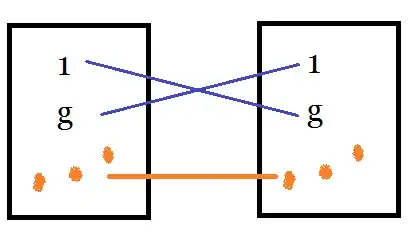Does a bijective map between two groups always produce an isomorphism?
I am trying to find a bijective map between two groups which does not preserve the group operations.
I have found a bijection $f(g)=g^3$, where $f:\mathbb{R}\rightarrow\mathbb{R}$, defined by $f(g+h)=(g+h)^3$.
But $f(g + h) \neq $ $ f(g)+f(h) \\=g^3+h^3$
